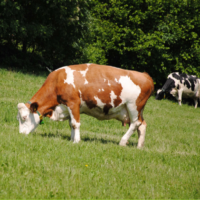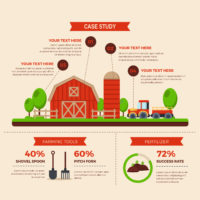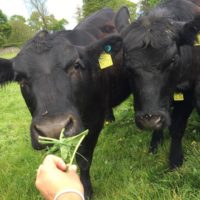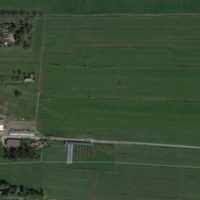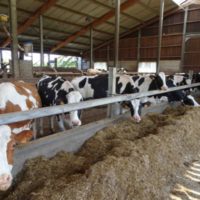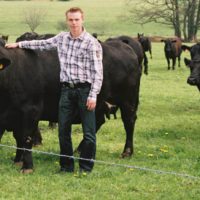Grazing management with dairy cows and sheep in mountain areas, reduction of use of concentrates
Practice abstract
Description
The organic farm, located in a mountain environment in South Tyrol (NE Italy), is part of the Professional School of Agriculture and Home Economics Salern. The teaching facility is aware of its role as an educator of the “farmers of the future”, whereby value is given to sustainability. For didactic reasons, besides four dairy breeds (Braunvieh, Simmental, Tyrol Grey, Holstein Friesian) also milk sheep (Lacaune) are kept.
In summer, the animals graze on the pastures around the farm buildings. For the cattle, a combination of short sward grazing and mowing is practiced; for the sheep, the system of continuous stocking is used. A peculiarity of the pasture management on the farm is partly practicing a mixed grazing with sheep and cattle to reduce parasite pressure.
In developing countries, no arable crops suitable as human food should be wasted on animal nutrition. For these ethical-ecological reasons and to decrease costs, since 2016, besides the avoidance of silage, concentrates use was reduced. A maximum of 450 kg of a cereal mixture is fed per cow and lactation. This reduction can be obtained by a high roughage quality, which is achieved thanks to a well-working barn-drying system with heating combined with a dehumifidier. Higher milk prices are obtained through marketing as organic hay milk.
Grazing requires, on the one hand, enough contiguous areas located close to the farm buildings. On the other hand, there is a need for livestock breeds and lines suitable for grazing and able to cover their energy demand with pasture herbage and dry fodder. In addition, there must be a market for organic hay milk and farm products. An essential factor in the success of innovation is one’s own conviction that reducing concentrates makes sense.
Abstract also available in:
Dutch | French | German | Italian | Polish | Swedish
Additional information
| Farming system | organic farming |
|---|---|
| Domains of innovation | animal feeding management, grazing management system |
| Main types of animal | dairy cattle, dairy sheep |
| Country | Italy |
| Product type | Practice abstract |
| Language | English |

